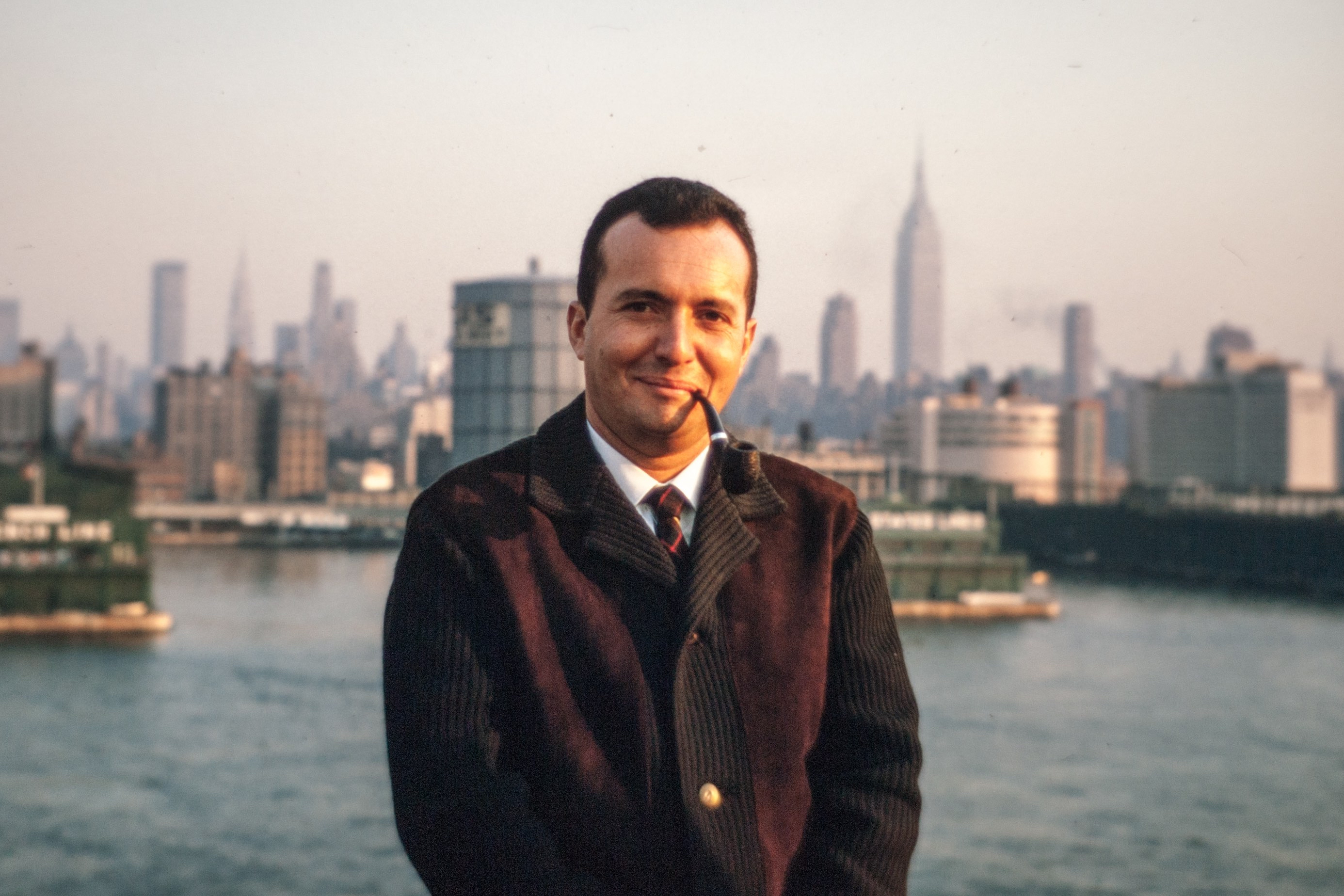 Michel Cojot; Photo courtesy of Cojot-Goldberg Family
Michel Cojot; Photo courtesy of Cojot-Goldberg Family
The late French banker and Holocaust survivor Michel Cojot played a key role in one of Israeli history’s most significant events: the 1976 hostage crisis and Israel Defense Forces rescue in Entebbe, Uganda. He is the subject of the documentary “Cojot,” which recently screened in rough-cut form at the Museum of Tolerance and will be released in 2020.
Israeli filmmaker Boaz Dvir, who spent 10 years on the project, told the Journal, “All my films are about ordinary people who go through extraordinary circumstances, transform and become game-changers, trailblazers, people who have an impact. Michel was an ordinary guy who got caught up in extraordinary circumstances and rose to the occasion.”
Dvir originally set out to make a film about Michel Bacos, the captain of the hijacked Air France flight who remained behind with the Jewish passengers when the pro-Palestinian terrorists released the crew. But Dvir came to discover that the real hero among the captives was Cojot, a speaker of several languages who became an advocate for the hostages and a go-between with the hijackers. Digging deeper, Dvir learned much more about Cojot and his experiences during and after the Holocaust that would shape his life.
Through extensive research and two dozen interviews with members of Cojot’s family, associates and Nazi hunters Beate and Serge Klarsfeld, a picture of Cojot emerged of a man haunted by the murder of his father and his perceived part in it that drove him to seek revenge.
Mixing archival footage, photographs and animation, the film relates how Cojot’s father was arrested and deported to Auschwitz while on an errand to deliver passports to fellow Jews, and that 5-year-old Cojot felt guilty about it for the rest of his life. “He believed that had he gone with his father, it would have worked out differently,” Dvir said.
That belief caused Cojot to blame the Gestapo officer responsible: Klaus Barbie, the infamous “Butcher of Lyon,” known for having personally tortured French prisoners of the Gestapo. After World War II, Barbie escaped to Bolivia, and the thought that he would evade punishment was too much for Cojot to bear. Thirty years later, posing as a journalist, Cojot flew to La Paz to talk to Barbie — and kill him. But in the end, he couldn’t pull the trigger. A year later, returning from to France from Israel, he and his eldest son, Olivier, were on the hijacked flight.

“What Michel did in Entebbe is truly remarkable. It took courage and talent and smarts and focus. The rescue might not have been successful without Michel, and people don’t know it,” Dvir said, noting that the event changed Cojot for the better. “It changes the way he deals with the guilt over his father’s death. He becomes a nicer guy, a better father and finally finds his place in the world. He goes from not being Jewish at all to embracing his heritage. He uses the rest of his life to educate people about anti-Semitism and build better relationships with people.”
For Dvir, whose maternal grandparents survived concentration camps but never discussed it, Cojot’s story resonated on a personal level. After his grandmother died at 52, taking her story with her, he was determined to get his grandfather, a Chasidic Jew from Poland, to speak about his experience. On a week’s break from his Israeli army service, he succeeded. His grandfather’s post-Holocaust life fighting in Israel’s War of Independence in 1948 inspired Dvir’s first documentary, “On a Wing and a Prayer.”
The director has several new projects in the works, including “The Legend of Lefty,” a country music documentary; “Discovering Gloria,” about an inner-city schoolteacher; a film about a Chinese scientist who is trying to cure Alzheimer’s disease; and “a film that relates to modern-day Germany.”
“I want to educate,” he said. “Not just entertain.”
Filmmaking, however, is Dvir’s side career. Now an associate professor of journalism at Penn State, he said he always knew he’d become a journalist. His family moved to the United States for his father’s job at the United Nations, and he obtained his undergraduate and graduate degrees at the University of Florida. After serving as a military journalist in the Israeli army, he returned to the U.S. 15 years ago to teach at his alma mater.
Born in Petah Tikvah, Dvir spent many holidays and Shabbats with his religious grandparents in Bnei Brak and grew up in a kosher home. Less observant today, he nevertheless feels “very Jewish” and plans to join a synagogue now that he has children, — twin boys, 2½.
He believes that Michel Cojot, who died in 1999, can be an inspiration to them and to everyone, “to find meaning in their lives, to take on a crusade, to figure out how to make the right decision, and to explore and shape their identity in a chaotic world.”
He added, “I think this film and Michel’s life shows us that there’s a lot more gray and complications that go along with figuring out what is the right thing to do and then doing it. I want people to walk away with the realization that they can make a difference. It begins with finding your own purpose. And it can lead you to that place where you can make a difference, whether it’s for your community or country or a cause.”
Dvir also believes the film is a testament to the power of investigative journalism. “There is a lot more to the stories that we hear,” he said. “When you start to dig deeper, you uncover amazing facts. I encourage people to find out more. You’ll be amazed at what you learn.” n






















 More news and opinions than at a Shabbat dinner, right in your inbox.
More news and opinions than at a Shabbat dinner, right in your inbox.